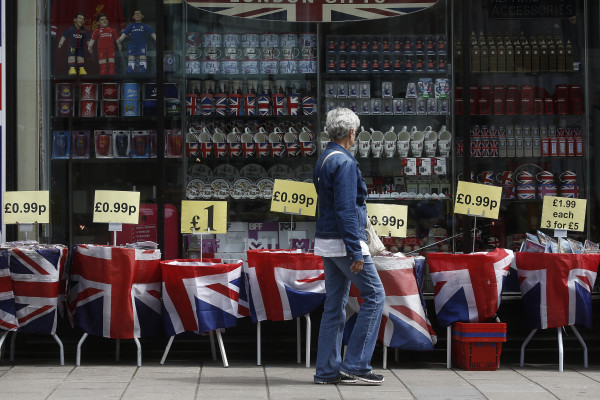

The UK economy grew by 0.4 per cent in the third quarter.
That compares with growth of 0.3 per cent in each of the first two quarters of the year.
Consensus estimates had forecast expansion of 0.3 per cent for the quarter.
The services and manufacturing sectors expanded most, while industrial production and manufacturing fell.
David Cheetham, chief market analyst at XTB, said: “Compared to the majority of G20 countries UK growth remains tepid and with the cloud of uncertainty surrounding Brexit showing little sign of clearing anytime soon there remains substantial headwinds in place.”
Sterling moved higher against its peer currencies in light of the announcement, and that has prompted the FTSE 100 to sell-off.
Sterling has risen because the market takes the view that better than expected GDP data makes an interest rate rise in November more likely.
Stronger sterling prompts a sell-off in the earnings of FTSE 100 companies because many of those companies derive the majority of their earnings from overseas, so a stronger pound reduces currency gains for companies when they turn the overseas earnings back into sterling.
Ben Brettell, senior economist at Hargreaves Lansdown, said that while Brexit fears have “undoubtedly” contributed to “lacklustre” economic growth, a more persistent problem is the weak productivity growth in the economy.
He said: “Productivity is the key driver of economic growth. Improvements here are the only way real incomes – and living standards – can rise. But economists and policymakers can’t agree on the cause, let alone the solution, to the UK’s productivity puzzle. Philip Hammond is expected to announce measures to address the problem in his autumn Budget next month – though whether they will work is open to debate.”
Kathleen Brooks, head of research at Forex.com, said she expects UK interest rates to rise in November, but only by a “token” 0.25 per cent, and said her expectation is that rates will then be left unchanged for up to a year, which could see sterling weaken, as the market expects more rate rises than that.
Emmanuel Lumineau, CEO at BrickVest, an online financial marketplace for real estate investors, said for the commercial real estate industry, higher interest rates and rising inflation make borrowing and construction more expensive for owners, which can have a constraining effect on the market but can also lead to an increase in property prices.
"There has certainly been an abundance of international capital flowing into real estate, almost every major institutional investor globally has been increasing their portfolio allocation to real estate over the last five years mainly because of lack of alternatives.
“We continue to see the highest level of volatility from the office sector as many international firms currently headquartered in the UK put decisions on hold over their long-term office space requirements.
"If the UK no longer gives businesses access to the European market, they may need to spread their staff across multiple locations to more efficiently access both the UK and European market.
"Indeed our recent research showed that 34 per cent of institutional investors believe the biggest real estate investment opportunities will be found in the office sector and the same number in the hotel & hospitality industry over the next 12 months.”
David.Thorpe@ft.com



